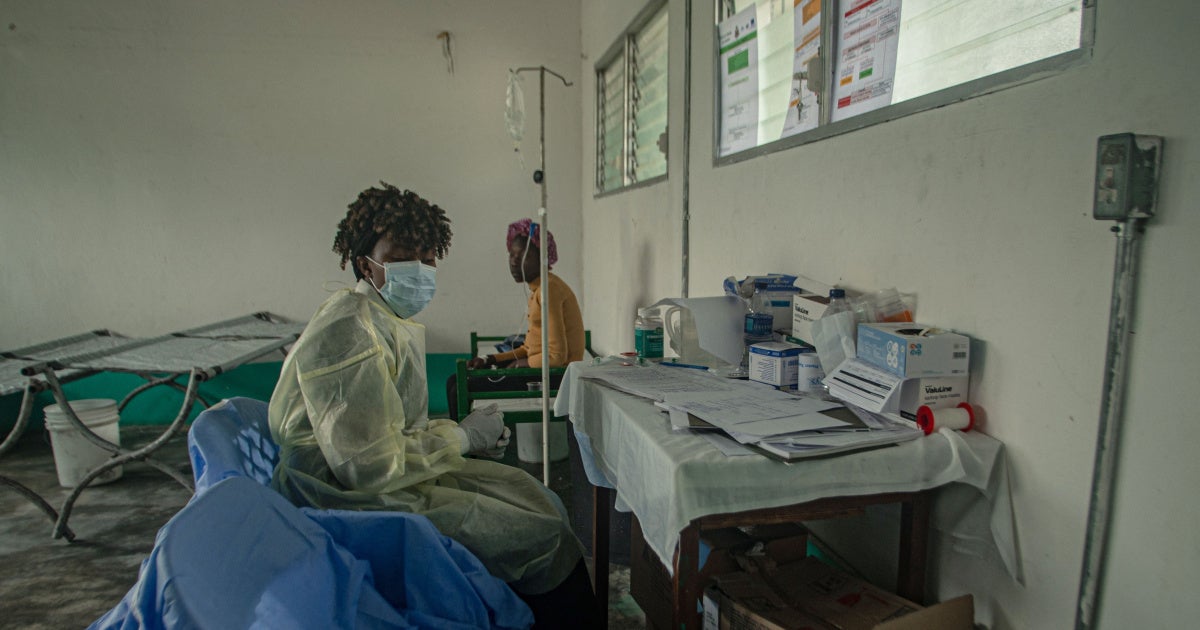(Washington, DC) – A resurgence of cholera in Haiti’s West department underscores the urgent need for coordinated, long-term action to restore basic water and sanitation systems, Human Rights Watch said today. The outbreak, part of a seasonal surge during the rainy period, is spreading in and around Port-au-Prince and its metropolitan area amid the near collapse of the capital’s health infrastructure and worsening insecurity.
Between January 1 and October 30, 2025, Haitian health authorities recorded 2,852 suspected cholera cases, 186 confirmed cases, and 48 deaths. Over a third of suspected cases are in children under 9, according to government data. After an 11-week period during which no new cases were reported, public health authorities are now seeing a resurgence of cholera.
“Cholera is once again threatening thousands of lives in Haiti because people lack access to the most basic services: clean water, sanitation, and medical care,” said Nathalye Cotrino, senior Americas researcher at Human Rights Watch. “Haitians need serious government and international efforts to address the outbreak and avoid more preventable deaths.”
After over three years with no confirmed cholera cases, infections reappeared in the country at the end of September 2022. The resurgence marks a painful continuation of the country’s struggle with cholera.
In 2010, Haiti’s first cholera outbreak was traced back to sewage negligently released from a United Nations peacekeeping base into a river. It caused about 9,800 deaths and over 820,000 infections. In 2016, the UN acknowledged its role in causing the epidemic and accepted a moral, but not legal, responsibility to address it. Today, persistent gaps in sanitation, clean water access, and emergency preparedness continue to leave the population dangerously exposed to renewed outbreaks.
“Stagnant water, broken sewage lines, and the accumulation of trash across the city create ideal conditions for outbreaks to spread whenever the rains come,” Diana Manilla Arroyo, Head of Mission for Médecins Sans Frontières (MSF) Holland in Haiti, told Human Rights Watch. “On top of that, a lot of the country’s infrastructure was destroyed in the 2010 earthquake.”
Lack of access to clean water, poor sanitation, and inadequate hygiene are major contributors to the spread of cholera. In Haiti, only 25 per cent of households have access to adequate handwashing facilities with soap, and 70 percent of people do not have access to an improved sanitation system, according to the UN. Heavy rain from Hurricane Melissa also risks spreading the bacteria to more non-chlorinated water sources.
The resurgence of cholera is exacerbated by extreme insecurity. Criminal groups have expanded their control across much of the country, blocking roads, restricting humanitarian access, and isolating communities in need. Violence has displaced over 1.4 million people this year, the highest number ever recorded in Haiti, forcing many into overcrowded informal settlements with little or no access to clean water or sanitation. These conditions put displaced people at serious risk.
For those who fall ill, accessing health care is difficult. Only 11 percent of health facilities with inpatient capacity in the capital remain fully operational, according to the UN. While people in more affluent and safer neighborhoods can reach private hospitals and treatment centers, those in areas controlled by criminal groups, such as Cité Soleil and lower Delmas, face severe movement restrictions, and do not have the means to pay for private health care.
The latest outbreak has reached Pétion-Ville, a more affluent neighborhood of Port-au-Prince where most UN and diplomatic offices are located, which had largely avoided significant cholera transmission in recent years.
With assistance from the Pan American Health Organization and other humanitarian partners, Haiti’s Ministry of Health has intensified efforts in the hardest-hit areas, including disinfection drives, public awareness initiatives, and the provision of chlorine, safe water, and hygiene supplies.
Haiti’s transitional government, with support from international partners, should urgently repair the national water and sewage network, guarantee safe humanitarian access to high-risk areas, and restore the operational capacity of public health institutions, Human Rights Watch said. Efforts to chlorinate water sources and conduct public awareness campaigns on cholera prevention and the use of chlorinated water are also crucial, especially during high-risk seasons.
Despite the worsening humanitarian and security conditions, several countries continue to return people to Haiti in large numbers, notably the Dominican Republic, the United States, and the Bahamas, as well as the British overseas territory of Turks and Caicos. These and other countries deported over 225,000 people to Haiti between January and the end of October 2025, according to the International Organization for Migration.
People should not be deported or otherwise returned to Haiti, where overlapping humanitarian, security, and public health crises endanger lives, and where they face a high risk of violence with no effective access to protection or justice, Human Rights Watch said.
“This cholera outbreak is being fueled by years of institutional neglect and the near collapse of essential services,” said Cotrino. “Foreign governments should be doing all they can to help Haiti put an end to cholera.”



